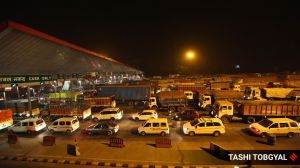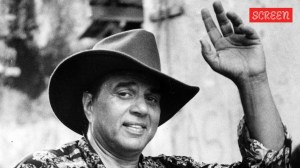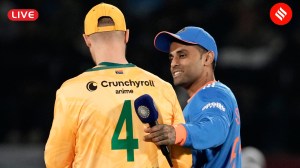“India, that is, Bharat, shall be a Union of States.” From whether two commas were necessary to the order of the words to the name of the newly independent nation itself, what would become Article 1 of the Constitution of India was passionately debated in the Constituent Assembly. Who said what, and how was the Article adopted?
The first debate on Article 1 was to begin on November 17, 1948. However, on the suggestion of Govind Ballabh Pant, the discussion on the name was postponed to a later date.

On September 17, 1949 Dr B R Ambedkar presented to the House the final version of the provision, which included both ‘Bharat’ and ‘India’. Several members expressed themselves against the use of ‘India’, which they saw as a reminder of the colonial past.
Seth Govind Das from Jabalpur preferred to place Bharat over India. A popular demand by several members was also to underline that India was a substitute for Bharat in “English language”.
“India, that is, Bharat” are not beautiful words for, the name of a country. We should have put the words “Bharat known as India also in foreign countries,” he said.
Hari Vishnu Kamath used the example of the Irish Constitution to argue that the word ‘India’ was only a translation of Bharat.
“If honourable colleagues in the House would take the trouble of referring to the Irish Constitution passed in 1937, they will see that the Irish Free State was one of the few countries in the modern world which changed its name on achieving freedom; and the fourth article of its Constitution refers to the change in the name of the land,” he said.
Story continues below this ad
“The Constitution of the Irish Free State reads: “The name of the State is Eire, or, in the English language, Ireland,” Kamath said.
Hargovind Pant, who represented the hill districts of the United Provinces, made it clear that the people of Northern India “wanted Bharatvarsha and nothing else”.
Pant argued: “So far as the word ‘India’ is concerned, the Members seem to have, and really I fail to understand why, some attachment for it.
“We must know that this name was given to our country by foreigners who, having heard of the riches of this land, were tempted towards it and had robbed us of our freedom in order to acquire the wealth of our country. If we, even then, cling to the word ‘India’, it would only show that we are not ashamed of having this insulting word which has been imposed on us by alien rulers.”
Story continues below this ad
Ancient references
While Das argued that the Vishnu Purana and Brahma Purana mention ‘Bharat’. Others said the seventh-century Chinese traveller Hiuen Tsang had referred to the country as Bharat.
“But by naming our country as Bharat we are not doing anything which will prevent us from marching forward. We should indeed give such a name to our country as may be befitting our history and our culture,” Das argued.
Das also mentioned a pamphlet, which he said was an effort “to prove that “India”, is more ancient than “Bharat”. “I want that it should be on record that this is incorrect. “Idyam” and “Ide” mean fire. “Idenyah” has been used as an adjective of fire and “Ida” signifies voice,” Das said.
Kamath suggested Bharat or Bharatvarsha or Bharatbhumi as possible names that are derived from scriptures.
Story continues below this ad
“Historians and philologists have delved deep into this matter of the name of this country, especially the origin of this name Bharat. All of them are not agreed as to the genesis of this name Bharat. Some ascribe it to the son of Dushyant and Shakuntala who was also known as “Sarvadamana” or all-conqueror and who established his suzerainty and kingdom in this ancient land. After him this land came to be known as Bharat,” he said.
Ambedkar’s refrain
Dr Ambedkar reminded the House several times that the civilisational debate was unnecessary since the name Bharat was not opposed by members.
“We are merely now discussing whether the word “Bharat” should come after “India”,” he said in response to Kamath’s intervention.
When Kishori Mohan Tripathi talked at length about how the word Bharat reminds everyone of the past glory of India, Ambedkar asked if this was necessary.
Story continues below this ad
“There is a lot of work to be done,” he said before the motion was adopted.








































